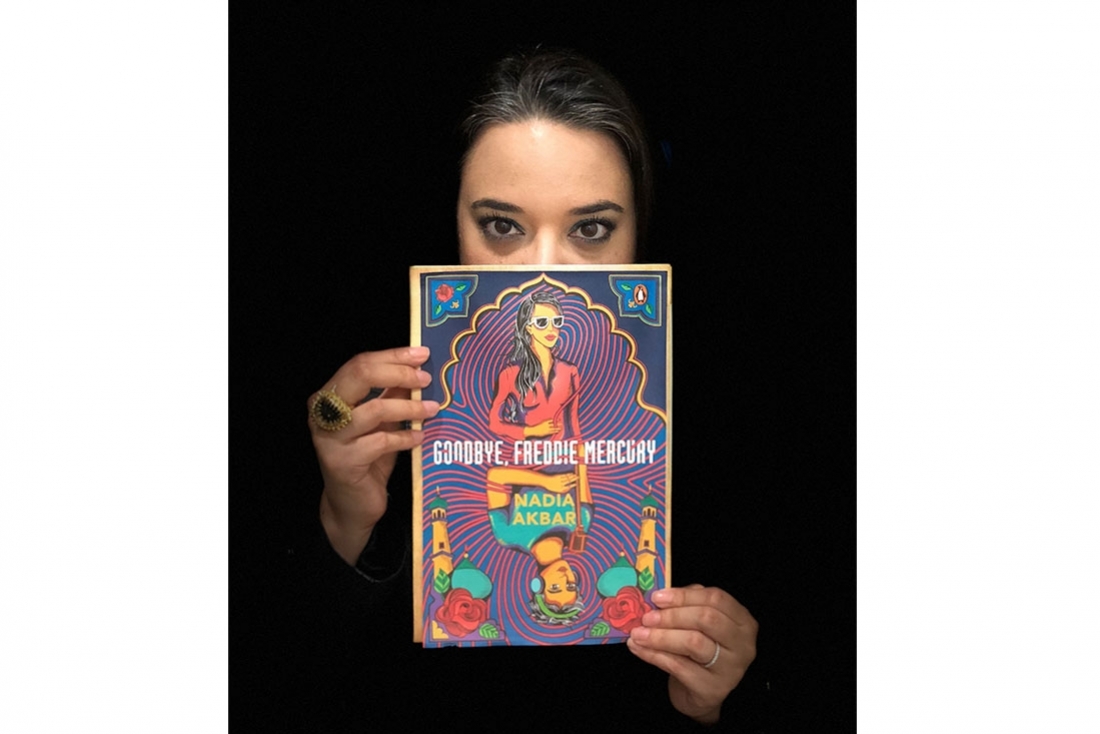

The Author
My romance with the written word began decades before I even knew the words Radio Jockey. It is a romance that still endures to this day. I think my love of music is just a continuation of my love of the written word. Unless you're a rare beast just in it for the beats, it's the lyrics that really capture the heart. There's a reason why Bob Dylan won the Noble Prize in Literature. It definitely wasn't for his nasally guitar twang.
I think romance with the written word is an everlasting love. I started reading at a young age and found myself living so far outside the realm of my reality that it was addictive. I was an only child, in the eighties, living in Lahore--where television was a sad desolate creature and gaming involved a carom board and busted fingernails. It made sense to read. And once you've stepped into Narnia, or Enid Blyton's boarding school mysteries, or the blood-spattered Maine of Stephen King, how can you go back? I never have.
Goodbye Freddie Mercury
Famous rock radio personality Bugsy is disillusioned with the limits of Pakistani fame, the prestige of his connected military family, the indulgence of his rich and powerful friends. Nida, a provocative Lahore University student, is purposely smashing all the boundaries of her restricted Islamic working-class life. Both paths romantically cross during an intrigue-filled election summer, as Nida spirals further upward in a stomach-churning trajectory of decadence, and Bugsy descends into the darkened political caverns of a corrupt election process that will ultimately change both their lives forever.
The Inspiration
That's a monster question--my inspiration. I think in part it was my life in Lahore, my radio jockey days, the way we live our lives, my friends. It's a view of Lahore that no one has seen before and I think it deserves to be experienced. But it is also a fictional world that has been created as a form of social critique. Corruption, political unrest, terrorism, women's rights, class disparity--these are all issues I try to tackle in the book without censorship. I think it's important to push the boundary when it comes to fiction, to help open conversations about issues in an effort to instigate change. If there is no conversation, there is no forward progress. If books portray a world where everything is perfect or romanticized, then we're not doing our duty as artists. Then we're just North Korea.
The Research
Freddie Mercury is supercalifragilisticexpialidocious! hahaha. But other than that, I think he really inspired me, and others, to take a chance. Many people don't know this, but Freddie was a desi boy named Farrokh Bulsara. I have a quote from my character Bugsy that I think says it best:
"Before he was Mr. Freddie Mercury ladies and gentlemen he was just simply Farrokh...brown and buck toothed and beautiful, and he’s ours yaar, he’s ours..."
--RJ Bugsy
With this book, I want to reclaim Freddie Mercury as desi. I want everyone to know that he's not some amazing colonial talent, but another stolen jewel. I want him to inspire millions of desi's who want to achieve something they perceive as unattainable or forbidden. His life, his talent, his career was a product of who he was, where he was from. If some brown funny looking kid can do it, so can you. It’s a metaphor. But to find out why the title is Goodbye Freddie Mercury, then you just have to read my book.
Text Shruti Kapur Malhotra